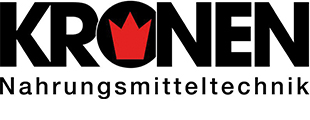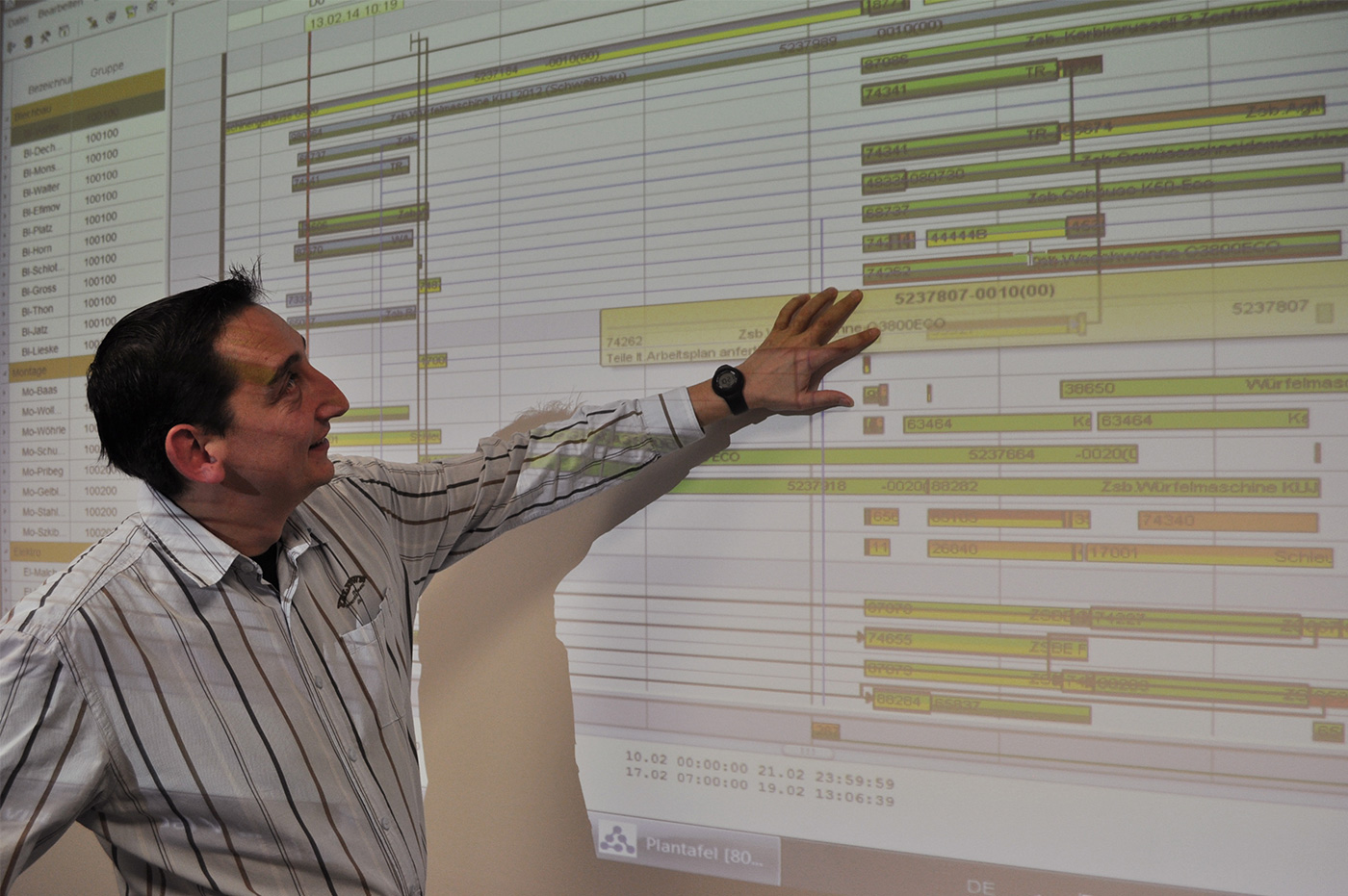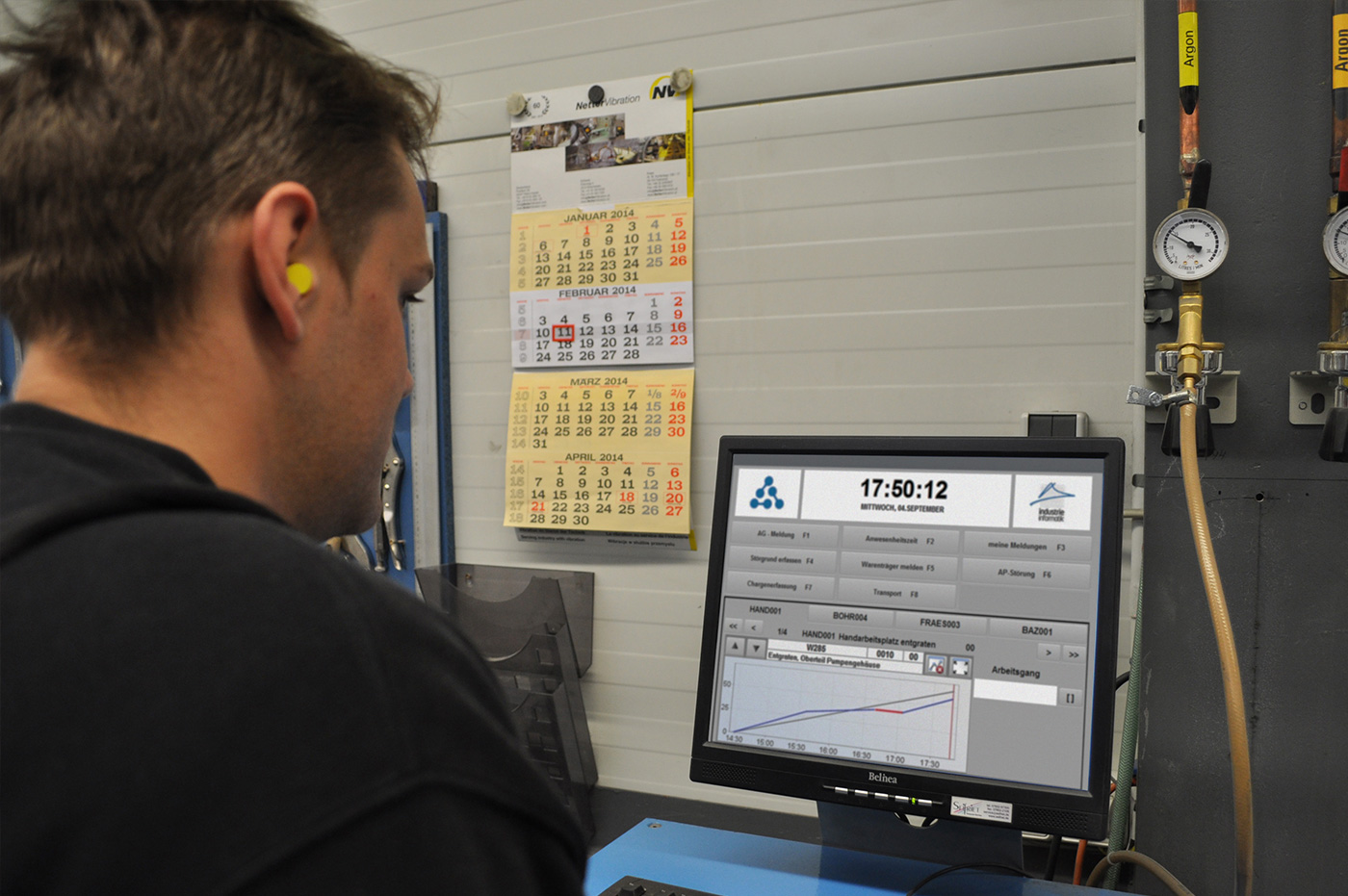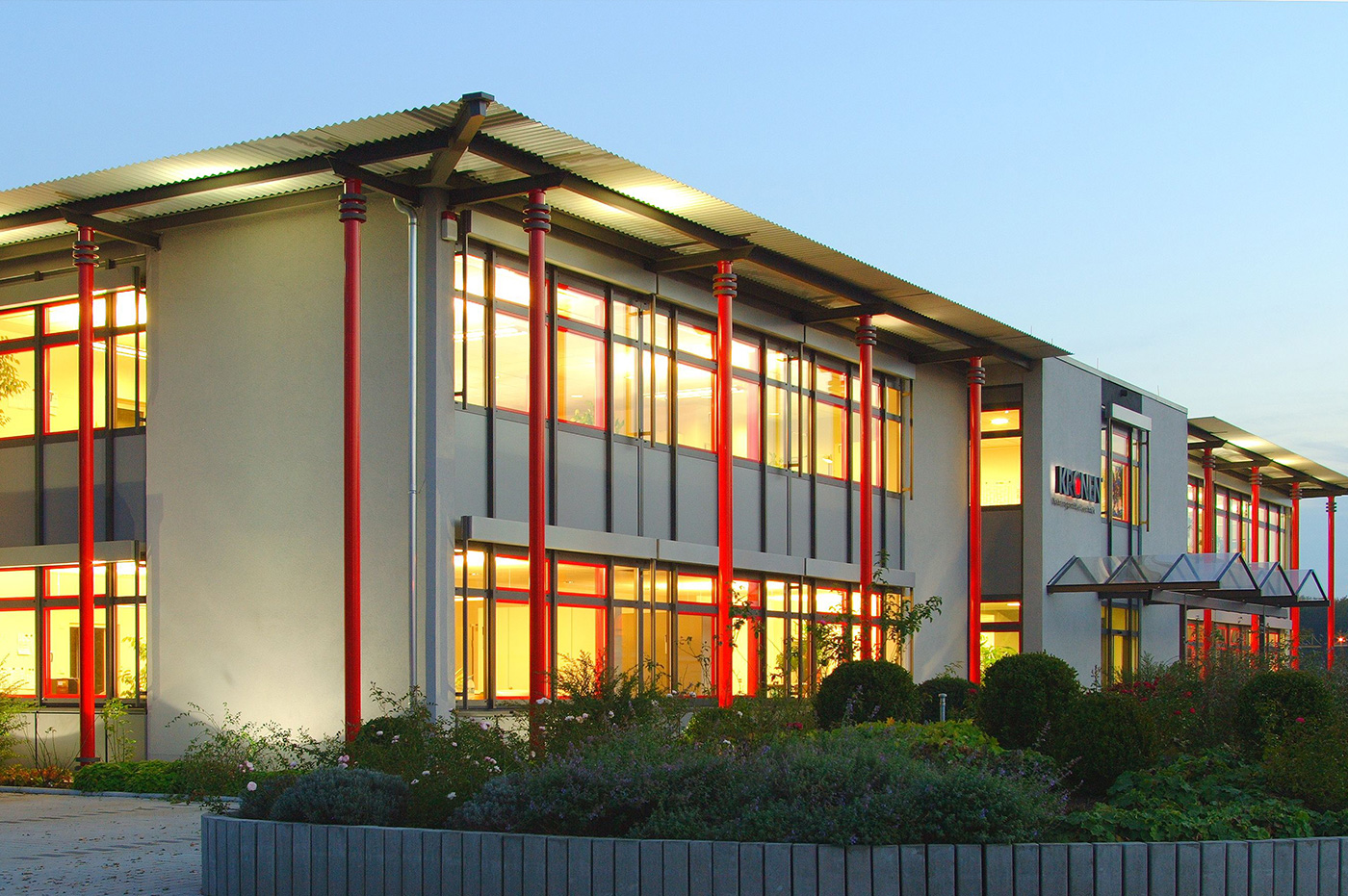Case Study Kronen
Whether you are enjoying a burger at a location of one of the two large American fast-food chains or flying with a national or international airline that serves meals above the clouds, you are unlikely to think about the city of Kehl across the Rhine from Strasbourg in southwest Germany’s Baden region. Yet in each case, when foods need to be cut, washed, dried, peeled, separated or packaged, machines by Kronen are at work.
Best optimization results thanks to cronetwork
Transparency at all levels
Reduction of throughput times
Improved delivery reliability
Early reaction to bottlenecks
No redundant data maintenance
Capable of integration in SAP®
Scheduling board manages our daily business
To ensure quality, on-time delivery, customer satisfaction, innovation and the company’s leading market position in vegetable and salad processing, Kronen decided to complement their ERP system SAP® R/3 (with financial accounting and materials management) by acquiring the MES solution cronetwork with its module scheduling board APS (advanced planning and scheduling) by Industrie Informatik.
Challenges of order networks
Kronen, a global producer of machines and systems for industrial food processing for the catering, gourmet, fresh-cut and food industry, with 85 offices worldwide, has been developing and producing machines since the end of the 1980s. These includes cutting machines, stamping machines, machines for processing cabbage, peeling machines, washing machines with vibration or band discharge, centrifuges and drying systems. Likewise Kronen provides complete processing lines for salads, vegetables, fruit and potatoes. More than 80 Kronen employees service 3800 customers worldwide. Kronen sales last year were 12.3 million euro with 28,000 articles and 540 suppliers.
As a classical custom to-order producer, for Kronen the challenge is not so much the number of orders but instead the order network behind each machine to be manufactured. Andreas Ell, manager of production planning (PP) at Kronen, explains: “Our order network was the prime mover regarding this topic. The network involves the structure of machines with sometimes over 500 parts that we purchase. Here we finally needed a better overview.” In other words, Kronen had encountered the planning capacity limits of their ERP system.
Before the introduction of cronetwork, production management was supported only by SAP® functions for creating production orders and the inventory information in the ERP. Highly complex machines could be correctly planned and realized only with utmost concentration and commitment on the part of production management staff. Even the slightest scheduling or management error triggered adaptive activities and hectic in production along with unwanted commitment of capital due to high WIP and inventory. The lack of real-time production feedback additionally complicated this effect. PP manager Ell addresses an SAP® bottleneck: “The planning module gave us 15 percent coverage regarding the actual issues in our production planning. Over 80 percent of SAP® involves strategic considerations and central planning.” However, Kronen works on a customer-order basis, so it does not make sense to extend the planning horizon more than two to three months. “We need to be able to reflect the next six weeks precisely,” says PP manager Ell. “However, what is decisive in our production is that not only the human and machine capacity factors but also available capacity of resources, of material being processed, are of utmost importance.” The issue of materials is neglected in SAP® planning, he notes. In addition to the limits of the ERP system and the lack of overview of capacity and resource requirements, Kronen’s desire to have integrated time & attendance (T&A) and their new PDC hardware led the company to implement a consistent MES solution. Robert Lankhart, CFO for controlling, finances and personnel, explains the situation: “We wanted our planning in a closed system instead of having Purchasing manually check the extensive list of missing parts from SAP® – of which some 70% had already been ordered.”
Integratability with SAP® proves decisive
CFO Lankhart explains: “We needed a multi-level overall system that covers business administration reporting and production planning levels of our company as well as the actual production level. In particular, an MES must serve to continuously control the implementation of applicable scheduling and to deliver feedback from the process.” On the one hand, the company required consistent transparency in purchasing, in production and in storage and material management, along with reduced throughput times and increased delivery reliability. On the other hand, the company did not necessarily want to react to economy-related growth of up to 30 percent with a risky increase in personnel in PP and production management. In addition to reports that are easily created by key users, the functionality of T&A, and APS scheduling board, it was especially the integratability of cronetwork with the control system SAP® that proved decisive for Kronen to choose Industrie Informatik. CFO Lankhart states: “We know of no competitor that has advanced the integration with SAP® so well.” Accordingly it was the primary goal of the MES project to integrate the production planning solution APS in combination with plant data collection and time & attendance with the existing SAP® system landscape. Here APS schedules the orders from SAP® not only for available human and machine capacities: Already upon scheduling, the availability of the required materials from over 540 suppliers is checked. PP manager Ell notes: “Here we consider our in-house production and outside orders. Thus planning also covers inventory, external orders and in-house production.” Thus even on dynamic shifts in the schedule of production orders, Kronen always has an up-todate view of the feasibility of scheduling.
Overview of resources covering all orders
CFO Lankhart regards the introduction of the MES solution itself as a total success: “Due to the decomposition of the project into small work packages for modules T&A, PDC, APS and material requirements lists, SAP® could incrementally be replaced as the control system for production detailed planning.” Now every three minutes SAP® transfers production orders via an interface to cronetwork, where detailed planning and scheduling for individual orders is handled in APS. Materials Purchasing then draws the binding deadlines from the MES based on the list of missing parts. PP manager Ell describes the benefits of cronetwork regarding scheduling conflicts and missing parts: “Production planning generates the production orders with parts lists and routings in the SAP® system. These are transferred to cronetwork and lead to requisitions in Purchasing.” The actual orders are created in SAP® and transferred to cronetwork via an interface. Within minutes the uncovered resource requirements disappear because the orders now cover the requirements. In the event of scheduling conflicts, e.g., the customer’s delivery deadline is before the supplier’s delivery date, such conflict is visible immediately after order confirmation in Purchasing. “In this way, Purchasing and Production Planning can now detect and solve a conflict early,” Ell adds. “The APS scheduling board also continuously shows us which employee with what qualifications is involved with which operation.”
What CFO Lankhart sees as special is that the APS solution by Industrie Informatik has enabled very high coverage as specified in today’s MES standards. At Kronen, formation of the order network, order network scheduling and determination of material requirement deadlines are handled automatically by cronetwork, which makes the work of planners much easier. “In the past, a great deal depended on the person of the planner, on his personal commitment and knowledge. Today we have largely mapped the knowledge of our staff concerning the interdependencies of individual assemblies of many machines onto the system.” This enables much easier substitution of planners. Ell and cronetwork plant data collection in operation at KronenLankhart appreciate the intelligent linking of T&A with work center capacity. Before introduction of the MES solution, the T&A data were entered via PDC terminals. At the end of the month, these data were processed manually in Access and forwarded as a list to Payroll Accounting. There the data were entered manually. Adaptation of production capacity, e.g., in the event of leave taken by an employee, was done manually or not at all. Planning results in SAP® were very imprecise. “Thanks to cronetwork, today all data are collected only once. Capacities and billing data are always updated automatically,” explains PP manager Ell. The quick and sure detection of capacity gaps as well as the quick and easy production planning leaves us more time for existentially relevant activities such as managing customer projects and the associated customization of standard machines. However, Kronen is looking farther into the future: They are currently considering extending the Industrie Informatik planning tool APS with planned orders and capacity blocker (sales orders with high probability) as well as the use of mobile MDC/PDC devices.
photos: © KRONEN GmbH
Products:
machines and systems for catering, gourmet, fresh-cut and food industries
Staff:
80
cronetwork modules:
scheduling board, APS, plant data, time & attendance, SAP® connector
“The APS scheduling board also continuously shows us which employee with what qualifications is involved with which operation.”




